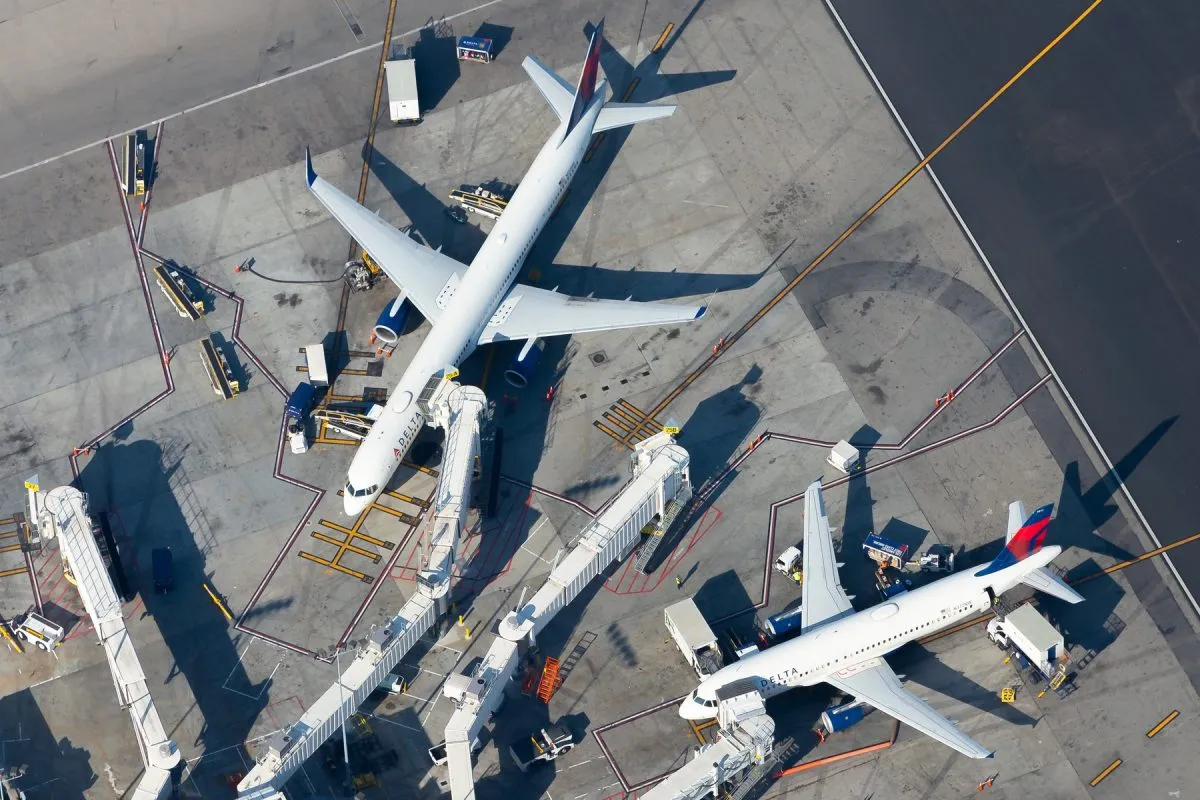Forecasting the Future of Business Travel in Asia

Skift Take
This sponsored content was created in collaboration with a Skift partner.
Across Asia, the race is on to build faster, more user-friendly booking tools that help a rapidly growing market of new travelers. In the coming decade, APAC may see as many as 273 million new outbound travelers, according to a Skift Research forecast, representing “54 percent of all growth worldwide.” While many of those departures will be to leisure destinations, a good share of them will be business trips: Within the region, “spending on business trips is expected to soar to $900 billion by 2025 from the current $400 billion,” according to Amadeus.
Yet 92 percent of online bookings in APAC are abandoned, according to one study, which suggests that the process of actually buying travel and managing itineraries is still too complex. Among the companies working to solve that dilemma is Travelstop, which recently closed a $3 million funding round led by Accel. The year-old start up has an ambitious goal of making business travel more intuitive and more manageable for employees and employers alike.
To better understand the state of business travel across APAC, SkiftX spoke with Travelstop CEO Prashant Kirtane and chief product officer Altaf Dhamani to learn more about the challenges and opportunities in the region.
Skift: Since the launch of Travelstop in August 2018, what have you learned about business travel in Asia? What needs to change going forward?
Kirtane: We’ve learned a lot about Asian business travel in the past year, starting with the fact that traditional managed travel tools have not evolved for decades. That's one reason why most of the business travel in Asia remains unmanaged. We're bringing a fresh perspective on business travel and expenses, which is simple, modern, and affordable. We're delivering the consumer travel experience that users love and combining it with the tools that businesses need to streamline their process. It’s not just about the product experience. We're also disrupting the business model. We're getting rid of all the complex and hidden pricing structures and offering our solution at a simple and affordable price point.
Dhamani: Asia is very diverse, and existing solutions don't work well across boundaries, languages, currencies, cultures, and demographics. We're designing a solution for the millennial generation of business travelers in Asia, who are tech-savvy and mobile. Across Asia, businesses have different needs as well — different languages, different currencies, regional supply, different levels of control. We're building a solution that works well for businesses and travelers across Asia.
What’s your general feeling about innovation in travel in APAC? Is it happening fast enough? And what technologies and tools do you see “graduating” from APAC to global markets in coming years?
Kirtane: Asia is shaping the future of travel. We've seen many innovative solutions coming from this part of the world. Ctrip, for example, is now the world's second-largest online travel platform. Oyo and RedDoorz are reinventing entry-level travel lodging. WeChat, Grab, and Go-Jek are now offering a wide range of services including payments and travel bookings, classifying them as a new breed of software called the superapp.
Companies are designing "mobile-first" experiences for the young, mobile, and rising middle-class population of Asia. We’ll see some of these technologies and trends graduate to global markets: mobile-first experiences, innovative payment solutions, and the rise of superapps.
When it comes to this new generation of business travelers — do you think they want their trips managed? Can a travel management platform be a win-win for both companies and employees?
Kirtane: Asian business travel trends are changing, and modern Asian business travelers are young and tech-savvy. That's why we're building a business travel solution for today's traveler. We offer the most extensive inventory for flights and hotels. We provide top-notch service. Moreover, we provide best-in-class user experience, which works well across countries, languages, and devices.
At the same time, our goal is to empower companies with tools that help them manage their travel program the way they like. When you have travel tools that go hand in hand with the policy, employees have a more user-friendly experience. Having bookings and expense reporting at their fingertips allows them to stay on top of their travel arrangements without taking up too much time or effort. The key is to offer choice, convenience, and flexibility for everyone — employers and employees. We provide the necessary controls that businesses need and the experience that travelers love.
A shocking proportion of trips in APAC are still unmanaged — 90 percent, by your count. Why should companies care about managing their employees’ travel?
Kirtane: It’s true, most business travel in Asia is unmanaged. Older incumbents are still offering antiquated systems which are expensive, provide limited inventory, and poor user experience for Asian users. That's why employees tend to gravitate towards consumer travel websites to book their business travel. While these websites offer excellent user experience, they're not suited to meet business requirements.
To give a few examples, unmanaged business travel often leads to compliance issues, uncontrolled costs, and lack of visibility. Apart from solving these issues, a modern business travel solution can streamline operations and improve the travel experience. It frees up time usually spent on manual travel booking tasks, allowing employees to focus on higher-value work.
Dhamani: At Travelstop, simplicity is at the heart of every product decision we make. We’re always looking for uncomplicated ways to empower our users. We offer the best customer experience coupled with tools needed for business travel compliance. Features like travel policy, book for others, approval workflows, centralized payments, and integrated expense reporting allow businesses to have better control over their spending.
Expense fraud is a growing concern for companies, according to a recent Skift story and data from the Global Business Travel Association. How can travel management platforms help prevent fraud and identify suspicious transactions?
Dhamani: Travel can represent a majority of a given company’s expenses, so having a single booking platform with integrated travel policy and centralized payment system can prevent a lot of expense fraud. We work with multiple suppliers to bring the most extensive inventory of flights and hotel to our customers so that every booking can happen on-platform. On top of that, we have built-in tools and controls for business owners and travel managers that can further help prevent fraud.
We also offer integrated expense management so that companies can have complete visibility of all their expenses — not just travel. Once they have all the data in a single platform, they can identify patterns and spot good or bad behavior across the company. We also provide insights like spending patterns for different employees taking similar trips, and companies can incentivize good behavior to encourage employees to spend less.
Travelstop has a terrific blog, and you recently had a post about the benefits that artificial intelligence can bring to travel management. What benefits stand out to you as the most important? What opportunities does AI present?
Kirtane: At Travelstop, we're focused on improving efficiency. We're always looking at ways to make employees more productive. The current travel and expense management workflows are shockingly inefficient. We've seen this in many big companies in Asia.
It starts from trip planning and the amount of time spent just booking an itinerary. With AI-driven personalization, we can reduce that time significantly. On average, it takes less than five minutes to book on Travelstop; compare that to the entire day of email back and forth you experience with a traditional travel agent.
We can predict the cost of the trip based on the historical data and seasonality, which can empower managers to make better policy and trip-approval decisions. Companies can also use predictive analytics to help employees customize their trips with recommendations while staying within budget.
We can automate expense workflows, reducing errors and boosting employee productivity. For example, we can automatically detect expense-reporting fraud or duplicate expenses, which may, at times, be overlooked by human auditors. Leveraging AI can also improve expense reporting processes, helping business travelers comply with their company's travel policies. That means AI and machine learning not only enhance the experience of business travelers — they also provide tangible benefits to businesses.
Duty of care is a growing concern in North America — is it also big in the conversation in Asia when it comes to business travel?
Kirtane: It is, and we believe companies have a duty of care to their employees. Companies have to ensure their employees’ safety, health, and wellbeing, especially when they're traveling for work. With Travelstop, we make it easy to know where your employees are at all times so that it's easy to reach them in case of emergency. However, we want to go a step further and ensure that their trips are insured as well. We're working to bring hassle-free insurance to our platform so that every business trip gets protected by default.
Any final thoughts on where business travel is headed next?
Kirtane: I’d just reiterate that traditional business travel management tools have not kept pace with modern times. They're complicated, disjointed, expensive, and they don't offer choice — and we want to change that. We're building a modern solution for today's traveler. We're bringing all the innovation that's happening in consumer space to entreprise. We provide the most extensive travel inventory, best in class user experience, and top-notch service to our travelers. Having an integrated travel policy, centralized payments, and all the tools needed for managing travel makes it even easier.
We want to empower businesses and employees alike with tools that enable a frictionless experience. With Travelstop, traveling for business can just be about business.
This content was created collaboratively by Travelstop and Skift’s branded content studio, SkiftX.




